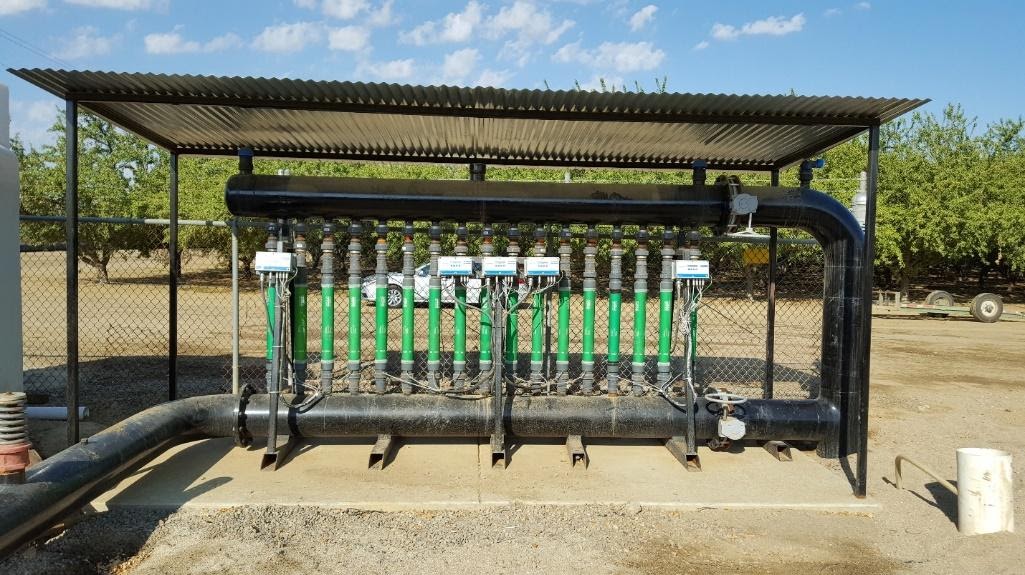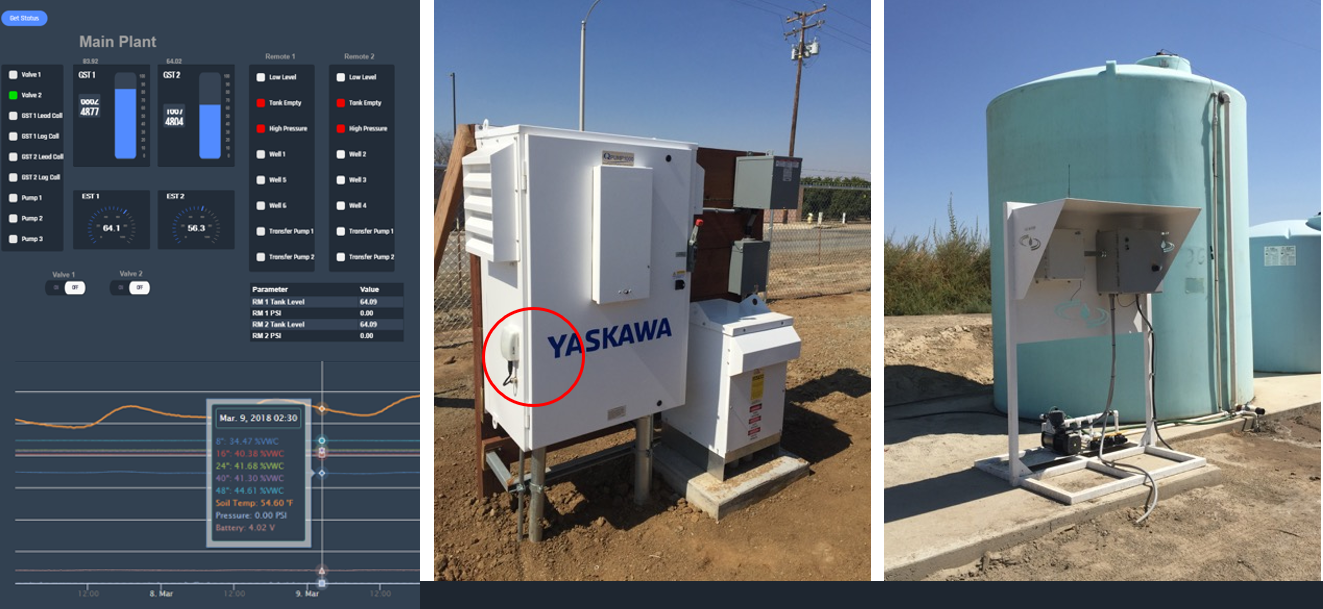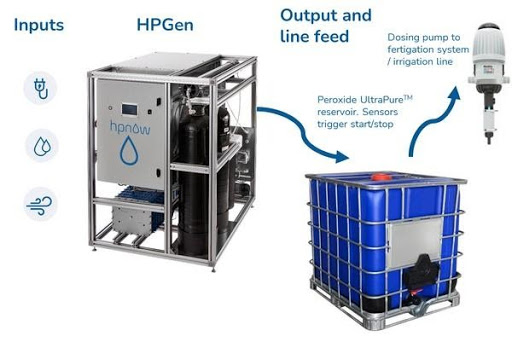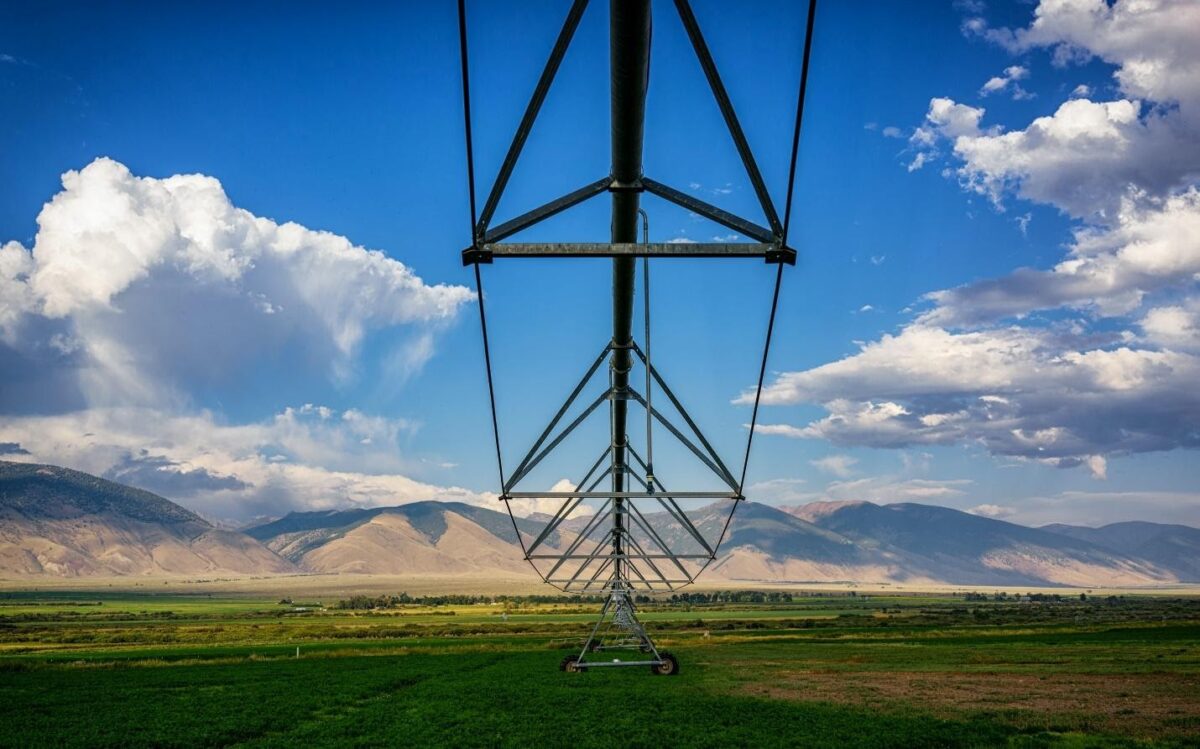July 8, 2021
Photo Taken by Vidar Nordli Mathisen
By Jeremy Stroud
We are far removed from the days where agriculture and the food system can be rationally separated from the subject of freshwater management. The overwhelming majority of global freshwater withdrawals are consumed for agri-food purposes, and irrigation is responsible for over 40 percent of the food we eat.(1) Irrigated farmland is vital to the economic prosperity of the global sector, producing higher value and more nutritious crops on average, which are benefits that cascade to provide food security and the drought-resilience for local agricultural communities.(2) Irrigation technologies and their associated users, policies, and businesses therefore become a central focus in pursuing the ever-growing need for environmental, economic, and social sustainability outcomes in the agri-food sector.
The Interdependence of Water and Food Systems
At its core, the intersection between water and farmland is often taken for granted for its importance in providing for the nutrition and well-being of a growing population. Water and agri-food systems are remarkably dynamic and interconnected, from the standpoint of inputs in production as well as output effects on the quantity and quality of water resources. Just as water is required to irrigate over half of the value of food crops, it is also a leading cause of land degradation and crop loss. Torrential downpours and flooding are primary reasons for soil erosion, while excessive soil moisture can reduce crop yield and heighten pest risks.(3) The consequences, however, of modern farming systems frequently lead to significant issues of pesticide and fertilizer runoff. On the other hand, surface and groundwater stores are a valuable production tool for stabilizing agricultural yields and enabling crop production in regions that would otherwise be too risky.
Achieving necessary nutrient requirements while managing the environmental external impacts of agriculture demands a multi-faceted suite of solutions and a transformation in the way agriculture is conducted.(4) While no panacea exists for these issues, investment in water technology and the adoption of context-specific, outcome-driven sustainable farming practices are critical movements leading this transformation.(5) Significant emphasis is placed on physical water productivity enhancements and geospatial precision software, although discussions are relatively sparse surrounding the equally important technologies enabling progress before the point of water distribution. This article advances the conversation for these technologies.
The Unsung Heroes of Agricultural Water Technology: Monitors, Pumps & Treatments
Irrigation involves far more than pipes and pumps. Modern agricultural technology incorporates an interconnected ecosystem of monitoring and functionality tools which share information and work towards specific performance outcomes. While different geographies have context-specific water issues, a general rule of thumb states that the higher the water use efficiency, the greater the value and cost of the infrastructure and technology. There are many significant tech firms blazing trails in the irrigation space; however, we will focus on three with a slightly different approach. These three firms are shifting the face of water technology on the less appreciated back-end: pumps, valves, and water treatment.
AQUA4D
AQUA4D is a Swiss water technology firm that has been operating internationally for 17 years. Their system treats water before it is distributed to crops through an innovative process that modifies the physical structure of water particles, improving penetration, efficiency, and optimizing irrigation. The technology is particularly useful in irrigating with hard water, which has high mineral content such as calcium carbonate, zinc, iron, and magnesium. The AQUA4D treatment dissolves these minerals that deposit in, clog, and depreciate physical irrigation assets. The same process also improves drainage of salts below the rhizosphere, preventing the growing issue of saline root-crystallization.(6)
“Our technology simultaneously addresses the twin issues of water scarcity and land degradation, by keeping soils moist for longer and leaching salts away,” said CEO Eric Valette. “In doing so, we create shared value for growers and contribute to a new paradigm of regenerative agriculture – doing more with less and sustainably improving soil health.”
Growers in over 40 countries have benefitted from this treatment, including one of Brazil’s biggest, Agricola Famosa, who saved 7500 ha from soil salinity while improving production. Recent developments include installations from Chilean avocado growers and strong adoption in the Californian almond sector.(7) As time progresses and water scarcity grows, the price of water is set to increase, leading to greater justification for more growers to purchase and implement such treatment technologies.
Example of AQUA4D Treatment Facility in California

Source: AQUA4D, 2018
AMI Global Technologies
AMI provides internet-of-things (IoT) condition monitoring and sensory technology for water distribution pumps, motors, and variable speed drives. Their technology offers end-to-end connectivity for agtech irrigation businesses to control devices and analyze the collected data remotely. Through many years of experience, CEO Henrik Laursen said that he has learned that “the value of water is linked to the price of water – the price of water is often linked to the energy it takes to move the water from point A to point Z (from the well to the field). Monitoring that part of the process is critical and if done right, provides enticing returns on investment and positive CO2 footprints per irrigated acre.”(8)
AMI is currently working with Crop Production Services in the Snake River Valley of Idaho, an area that produces nearly 30 percent of the potatoes in the United States. The technology’s IoT monitoring and control software has enabled field managers to analyze and decrease pumped water volumes, thereby reducing the energy and labor costs that comprise the majority of irrigation operating expenditure. Alfa Laval, a publicly traded Swedish industrial firm with a strong food and water division, purchased a 20 percent stake in AMI Global earlier this year. This investment is set to take AMI to new heights in IoT water tech innovation.
AMI Vapor X Technology: Sensors, Pump & Tank in Action

Source: AMI Global, 2021
HP Now
Another enticing trend in agricultural water treatment is the inclusion of hydrogen peroxide treatment to optimize water quality before application. Biodegradable and generally conducive to stable environmental outcomes, the inclusion of this method in a water management process has been shown to increase drought tolerance and optimize soil conditions to increase potato yields by one recent study.(9) HP Now is a Danish firm that offers mobile, on-site hydrogen peroxide generation and safe-concentration treatment in several use-cases. Agricultural irrigation is among the most important segments for the firm. Their HP Gen product can improve fertilizer distribution within water pathways and reduce biofilm build-up for high-value crops. It has been linked to successes in cucumber, blueberry, and potato production so far.(10) Increased soil organic matter levels were also indicated by an initial study by the firm. Developments in this treatment space should be closely watched to see how it may be more widely implemented in global irrigation activities.
HP Now’s HP Gen Process

Source: HortiDaily, 2021.
A Bright Future for the Agricultural Water Technology Value Chain
As the challenges relating to water in the agri-food system are growing, so too is the importance of innovative agricultural water technologies. This movement is underpinned by advances in remote sensing, geospatial technologies, and predictive algorithms. While point-of-use water distribution systems (such as pivot or drip irrigation) and precision agricultural efficiency systems are widely discussed, other dimensions of the irrigation value chain receive less attention. Agricultural water monitors, pumping systems, and treatment mechanisms from innovative firms such as AQUA4D, AMI Global, and HP Now have shown remarkable promise in improving water efficiency, crop yields, and equipment maintenance.
These trends are set to reach new heights as IoT technologies improve and innovative water treatment methods such as hydrogen peroxide and electromagnetic application continue to grow. The future is exciting as more research enables a new age for agricultural water technologies, for both back and front-end functions.
***
Notes:
- Barbier, E. (2019). The Water Paradox. Book.
- The World Bank Group. (2021). Water in Agriculture.
- Rajanna, Dass & Venkatesh. (2019). Excess Water Stress: Effects on Crop and Soil, and Mitigation Strategies.
- The World Bank Group. (2021). Water in Agriculture.
- Nikolaou et al. (2020). Implementing Sustainable Irrigation in Water-Scarce Regions under the Impact of Climate Change. Agronomy. https://doi.org/10.3390/agronomy10081120
- Hachicha et al. (2018). Effect of electromagnetic treatment of saline water on soil and crops. https://doi.org/10.1016/j.jssas.2016.03.003
- https://www.freshplaza.com/article/9247232/chilean-avocado-growers-challenged-with-drought/?edition=3
- Interview. (2021). Henrik Laursen.
- Abd Elhady et al. (2021). Hydrogen Peroxide Supplementation in Irrigation Water Alleviates Drought Stress and Boosts Growth and Productivity of Potato Plants. Journal of Sustainability.
- HortiDaily. (2021). Blueberry yield improved because of hydrogen peroxide generation.
ABOUT THE AUTHOR:
 Jeremy Stroud offers insights on global agri-food and water investments, with a focus on sustainability and commercial outcomes relating to farmland, infrastructure, water resources, and renewable energy. He is currently an investment consultant and graduate student at the University of Oxford. He has several years of experience supporting boutique investment firms, consumer packaged goods companies, and sector-focused media outlets. With an interest in sustainable farmland investing and water management, Stroud places a long-term lens on projects relating to the natural environment.
Jeremy Stroud offers insights on global agri-food and water investments, with a focus on sustainability and commercial outcomes relating to farmland, infrastructure, water resources, and renewable energy. He is currently an investment consultant and graduate student at the University of Oxford. He has several years of experience supporting boutique investment firms, consumer packaged goods companies, and sector-focused media outlets. With an interest in sustainable farmland investing and water management, Stroud places a long-term lens on projects relating to the natural environment.

Let GAI News inform your engagement in the agriculture sector.
GAI News provides crucial and timely news and insight to help you stay ahead of critical agricultural trends through free delivery of two weekly newsletters, Ag Investing Weekly and AgTech Intel.




